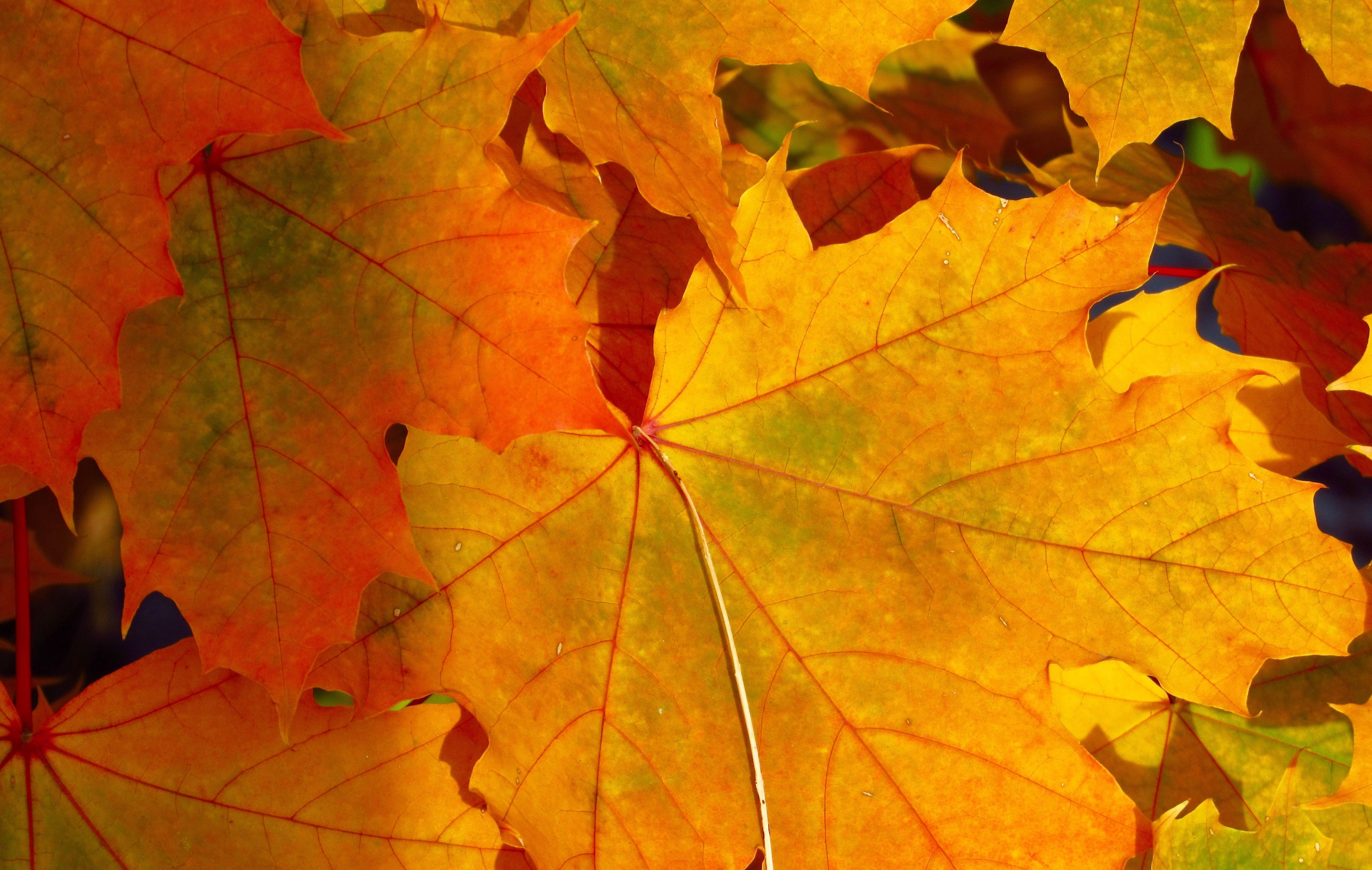Why Does the Season Before Winter Have Two Names?
A look at the history of fall and autumn.

There is indecision about the season that comes before winter. The plants all die, or seem to, but at the same time are at their most magnificent: they produce more fruit, turn vibrant colors. We are relieved at the end of a hot summer, and terrified of the long winter ahead. (At least those of us with seasonal affective disorder.) We cram in holidays to both celebrate these brief few weeks and also mourn the green times behind us. And we don’t even know what to call this weird time: is it autumn or fall? Why does this season have two names?
The understanding of seasons varies dramatically based on where you’re located geographically, coupled with, if applicable, which country colonized your country. In the temperate zones, the seasons are generally split up into four; in tropical zones, usually two; in South Asia, usually six. Older calendars may have five or ten or more or fewer. Countries like the US, which span multiple zones, run the gamut. The United States sticks to four seasons, even in parts of the country like South Florida and most of the Southwest, which really only have a wet season and a dry season.

The etymological roots of the English words for the seasons—summer, winter, spring, and autumn/fall—are all weird and fun in their own ways. As some of the most basic concepts language is required to describe, the words for the seasons are extremely old. “Over the centuries, these names change, rather dramatically sometimes, and also from community to community,” says Anatoly Liberman, a historical linguist who has written on the subject for the Oxford University Press. “Summer” originally dates back to the Proto-Indo-European root sem, which meant “half,” and possibly suggests that, in Europe, there were originally only two seasons. From Proto-Indo-European (the root of all major European languages) that root transformed into an array of similar words: sumor, sumar, somer, that kind of thing.
Winter similarly dates from Proto-Indo-European, this time from wed, which meant water, wet, or rainy. It splintered outwards from there; the English “winter” comes from the Proto-Germanic wintruz. My point with these is to note that the two extreme seasons, winter and summer, are very, very old words. The other two seasons? Not so much.

Until around the 16th century, the English language did not really have distinct words for either spring or fall. A survey of language used to describe springtime in Early Modern English, from the 14th to the 16th centuries, shows a whole bunch of terms: vere, primetide, and especially lenten. “This variety of terms suggests that ‘spring’ was not fully lexicalized in the language; ‘spring’ was relatively peripheral compared to winter and summer,” writes Earl R. Anderson in his book Folk Taxonomies in Early English. Same thing for fall: it was sometimes described as the time for harvest, but “harvest” was not the name of the season; it was just what you did during the late summer or early winter.
Fall was, in fact, the very last of the four seasons to become codified with a name, or even the designation as a season on par with the others. There are mentions of winter, summer, and spring in manuscripts dating back to the 12th century; the name of spring may not have been settled upon, but the idea that it was a full season came much earlier than with fall.
The word “autumn” has French roots; in modern French the word is automne. It certainly has Latin roots, coming from the word autumnus, which in turn comes from…somewhere. These etymologies are all guesswork: there was no day when everyone stopped using one and started using another, with a nice paper trail to verify it, so this is all just assumptions based on plausibly similar older words and meanings. Liberman is not particularly wowed by any of the possible origins of autumnus.

Autumn shows up in English first around the late 14th and early 15th centuries, though it coexisted with “harvest” as a loose description of the season for another 200 years.
Fall is different. It first shows up in the mid-16th century in England, primarily at first as “the fall of the leaf,” which was shortened to just “fall.” Like “harvest,” it is descriptive, but more evocative; not just a term coming from the most important action taking place during this time period, but a more poetic observation of what makes this season different. (The etymology of “fall” is not that interesting. You can trace it back to Middle English, Old English, Proto-Germanic, and then Proto-Indo-European, but in each era it basically looked like “fall” and meant “fall.”)
The recognition of fall/autumn as a distinct season started happening in England right around the time that the American colonies began to separate linguistically from British English. By the 17th century, with American colonies already established, more calls for what was called “spelling reform” began. Ever since the Norman conquest, English had been littered with scraps of French, and it was around this time that prominent writers like James Howell began to agitate for sensible wholesale changes to English. These changes were primarily in spelling—logique to logic, for example—but others took things further.

Noah Webster, of Webster’s Dictionary, was an ardent spelling reformer, but while his work was couched in doing the sensible, logical thing, his motivations were also political. He was primarily responsible for making changes to American English spelling in words like “center” (not “centre”) and “color” (not “colour”). Webster’s work was widely adopted, which goes to show that around the time of independence, the American colonies were absolutely ready to change the way they spoke and wrote as a means to differentiate themselves from the imperialist British. By the mid-19th century, “fall” was used more often in the U.S., and “autumn” more often in Britain.
In a 1908 essay that somewhat snootily examines Americanisms, H.W. Fowler admitted that “fall” is a far superior term to “autumn,” but that “fall” is now distinctly American. Here is a very good paragraph from that essay:
In the details of divergence, they have sometimes had the better of us. Fall is better on the merits than autumn, in every way: it is short, Saxon (like the other three season names), picturesque; it reveals its derivation to every one who uses it, not to the scholar only, like autumn; and we once had as good a right to it as the Americans; but we have chosen to let the right lapse, and to use the word now is no better than larceny.
But because autumn and fall became the go-to name of the newly crowned season at around the same time, both terms are used in both the U.K. and the United States. To an American, “fall” is the more common word, with “autumn” easily understood but not the norm. In the U.K., the opposite is true.
*Correction: The caption for The Harvesters originally referred to the painting as The Corn Harvest. The latter is a poem by William Carlos Williams that was inspired by the painting.







Follow us on Twitter to get the latest on the world's hidden wonders.
Like us on Facebook to get the latest on the world's hidden wonders.
Follow us on Twitter Like us on Facebook